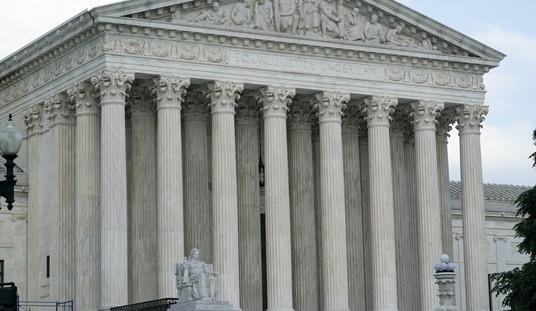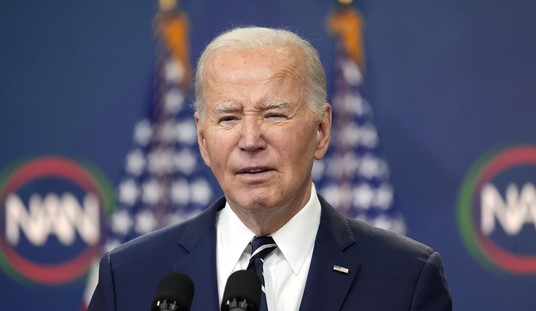In his farewell address, President Eisenhower warned against the “military-industrial complex,” the web of lawmakers, lobbyists and contractors that could band together to dominate the debate over national defense.
It’s a fair enough concern.
The U.S. spends more on defense than anyone, accounting for 45 percent of the planet’s total defense spending, according to the Stockholm International Peace Research Institute. Undoubtedly some of that money is wasted on programs and personnel our country no longer needs.
But all that spending at least buys us the most powerful military in history, allowing our forces to command the skies, protect the seas and dominate the land, projecting power anywhere at any time. So the “military-industrial complex” has its advantages.

What’s unclear is how we’re benefiting from a far more powerful complex -- the “political-industrial complex.”
This framework has given our country bad laws, a virtually permanent governing class and ever-more federal spending. It’s helped many lobbyists buy their families Mcmansions in McLean, Va., but it hasn’t benefited the rest of us much.
The dangers of this complex are on full display in the debate over health care “reform.” This week, House lawmakers are scrambling to pass a bill that would remake some 20 percent of the U.S. economy. Democratic leaders, from the president on down, had insisted they wanted a bill passed by the end of July. As recently as last weekend, Speaker Nancy Pelosi was still insisting she could do just that.
But what’s driving this need for speed? “I think 70 percent of the American people would want [a bill],” Pelosi said last week. “I want a bill.” Well, lawmakers are heading home for the month of August to tour their districts and host town hall meetings. Let’s wait and see what people have to say.
Recommended
The fact is, if Pelosi’s correct and 70 percent of Americans want what she’s offering, a bill will pass immediately after Labor Day. Lawmakers aren’t in the business of denying what 70 percent of their constituents want.
Lawmakers seem afraid that, if they don’t pass a bill before recess, their constituents will tell them -- in no uncertain terms -- not to do so. Well, that’s the point of a republican system. We can’t all go to Washington and vote on legislation, so we select a handful of people to represent us. Those elected officials ought to take the time to listen to voters before they pass anything.
Who else is pushing for swift passage? Lobbyists.
Obamacare would be merely an excuse for more influence-peddling by the political-industrial complex. It wouldn’t produce any big savings for the average American or for the government. The non-partisan Congressional Budget Office was recently asked to evaluate Obama’s plan to create an independent board that could supposedly hold down prices in a reformed system. Its report makes sobering reading.
At best, the CBO says, the proposal would only save $2 billion over the next 10 years. That’s nothing compared to the $1 trillion-plus price tag of the bills. Further, “In CBO’s judgment, the probability is high that no savings will be realized.” Why not? “Outside influence on the council and the president … might make it politically difficult to recommend and implement reforms that could be viewed as undesirable by interested parties. Medical providers, beneficiaries and Members of Congress will probably exert considerable pressure.”
Well, of course they will. That’s the political-industrial complex at work. Lobbyists know that the bigger and more intrusive the government is, the more power they’ll have. A government-run health care system would be great for pressure groups, lousy for patients.
Finally, it’s worth asking again, “What’s the hurry?”
Obama has vowed his plan would “bend the cost curve,” but even if he had signed legislation before recess, it wouldn’t have any effect for years to come. “In the bills as now written, nothing would actually happen for more than three years,” note James Capretta and Tevi Troy in National Review Online. “Indeed, no uninsured American would get health insurance under the Democratic bills until 2013 at the earliest.”
Surely waiting another month won’t hurt, then.
Lawmakers are trying to hustle through a bill that few (if any) of them will actually read, so they can increase their power and the power of those who make a living off the political-industrial complex. It’s time for cooler heads to prevail, so Americans can start taking back their government from the well-paid influence peddlers.

























Join the conversation as a VIP Member